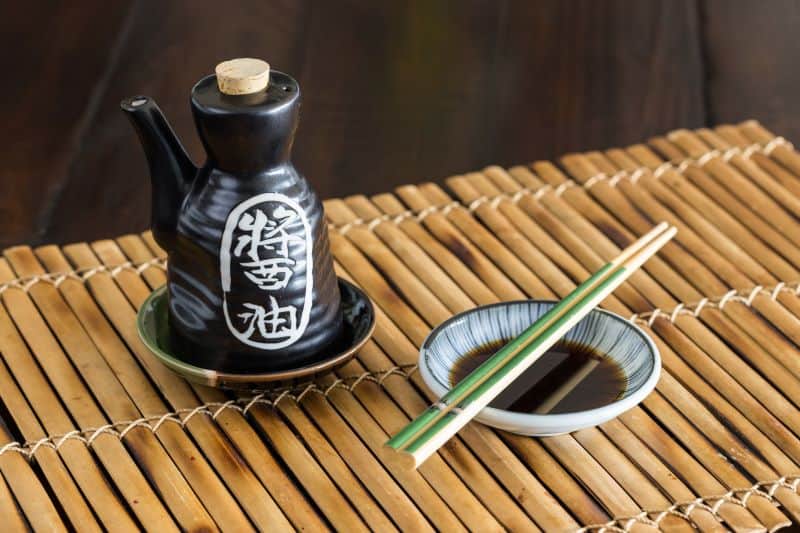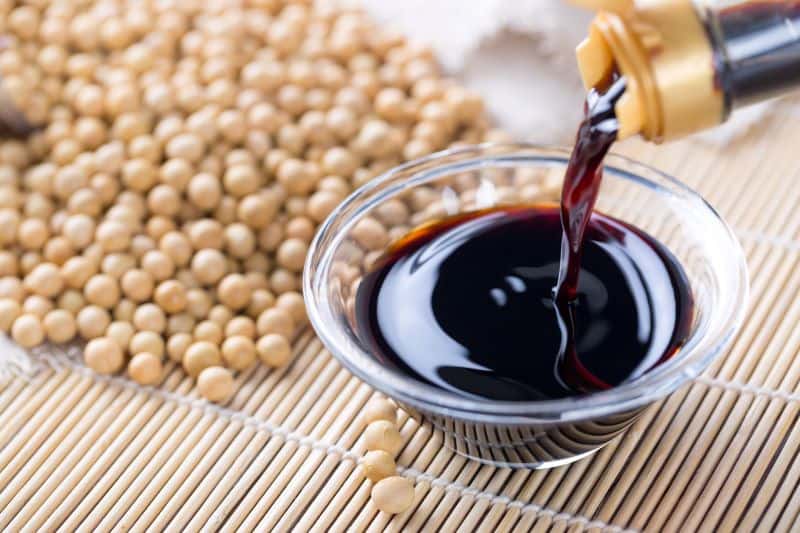Does Soy Sauce Go Bad? How to Store Soy Sauce Properly
Soy sauce is such a staple piece in almost every family’s kitchen. The fact that it can be used as the main flavoring for a meal when you’re cooking in a rush or just a splash added to something more complex makes it one of the most versatile sauces.
The super fans amongst us might even have all of the variations of soy sauce, sweet, light, dark and tamari, along with a recipe for each, ready and waiting to be whipped out.
How many times have you looked at that half-empty bottle and thought ‘my gosh I think I might have had that for way too long’? We all have, I’m sure, wondering if the soy sauce has gone bad. So let’s figure this mystery out once and for all.
Firstly, let’s take a look into who on earth created this spectacular flavor and what it was for.
Read Article: How to Tell if Pork Chops are Bad
Soy Sauce History

In Asian culture, it has been common to pickle raw food in salt to make them last longer. Korea, Japan, Indonesia, and the surrounding areas all used pretty much the same process. But which of them first created soy sauce?
It was the Chinese and it was well over 3000 years ago. Now, the soy sauce you have at home isn’t exactly the same as that brewed in ancient China, unfortunately. Things evolve and get adapted to suit the market. Especially in the last 50 years, soy sauce has changed quite a bit.
People with gluten intolerance are generally not advised to use soy sauce in their food, which is concerning since it is made from wheat. Who would have guessed it?
Both Chinese and Japanese soy sauce are very popular in today’s market. You might not even know if what you are using is Japanese or Chinese as the difference will only be spotted by the fanatics.
Japanese soy sauce is what you would use with your sushi, sweeter and runnier in consistency. Whereas, Chinese soy sauce is thicker and much saltier and scrumptious when cooked with chicken.
Check this Article: How Many Ounces in a Shot?
Fun Facts About Soy Sauce

It would be rude to learn about soy sauce’s history without sharing some cool facts about it with friends.
- Tamari soy sauce can be made gluten-free. So if you begrudge not being able to have soy sauce due to wheat allergies, look out for Tamari.
- There are only two ways to make the sauce. Chemical methods (the store-bought soy sauce is made like this) and the traditional method of brewing.
- Most suitable for cooking with meat. The soy sauce brings out the meatiness in chicken and red meats making them perfect partners.
- Mindbogglingly, 1 tablespoon of soy sauce had 1 gram of protein. That’s loads!
- Why is soy sauce brown? The color occurs as a result of a chemical reaction between sugars and amino acids.
- Soy sauce can reduce allergies
When shopping for soy sauce, there are a few things to keep your eyes peeled for. Soy sauce should have 8% or more protein. Do not purchase any soy sauce containing MSG as this can cause headaches, nausea, heart flutters and hot flushes. MSG is in more foods than we care to think about so next time you’re doing your weekly shop, take extra time to look at the labeling of any ready-made sauces or meals you get.
Health Benefits of Soy Sauce
It is a well-known fact that in Asian cultures natural remedies are favored over modern-day medicine and foods are included in their natural medicines. Soy sauce being such an ancient Asian sauce it is known to contribute to healing in certain areas.
- If you suffer from high blood pressure, soy sauce actually helps to reduce it. Ironic when soy sauce is quite salty. Western logic tells you otherwise.
- Soy sauce aids in the digestion process of the meal it is consumed with.
- It strengthens the immune system.
- Get your dose of iron and magnesium by using this savory sauce on your food.
- Soy sauce even has vitamins such as B3 and B2. B3 will help your body fight off high cholesterol and aching arthritic joints. B2 is absolutely essential in one’s daily diet because it helps your body break down fats, carbs and proteins.
How to Store Soy Sauce and When to Throw it Out

I think it’s safe to say that after all that information overload we are all soy sauce intelligent by now. For your soy sauce to go bad you would have to leave it in sunlight and in damp warm conditions over a long period of time. Something I don’t think is very likely to happen in your homes. Soy sauce can only go bad if it’s horribly neglected.
Keep your soy sauce in a cool dry place, like the pantry or the fridge, depending on how long it has been open. You can keep your soy sauce in the pantry for about a year, after that it’s advised to be moved to the fridge to keep its taste spot on. In the fridge, it can last another whopping two or three years.
It’s great to know that soy sauce that is around for 2-3 years is still good to use. That’s great! It can keep for longer than that, but it crosses the threshold when then the taste isn’t quite the same. Even the texture may be affected. So it’s best not to keep it around for longer than a couple of years.
I think I heard that sigh of relief you just let out. That sigh is saying, ‘well, my soy sauce runs out way before then.’ Most people do, so you have nothing to worry about.
When in doubt, give it a sniff and a little taste. If it doesn’t smell right to you and the taste is a little bitter or the texture is separated then it has probably come to its end and needs to be thrown out. Or if there is anything that resembles mold on around the lid or in the sauce, please don’t taste it and get rid of it.
Read this Article: Can You Freeze Chicken?






